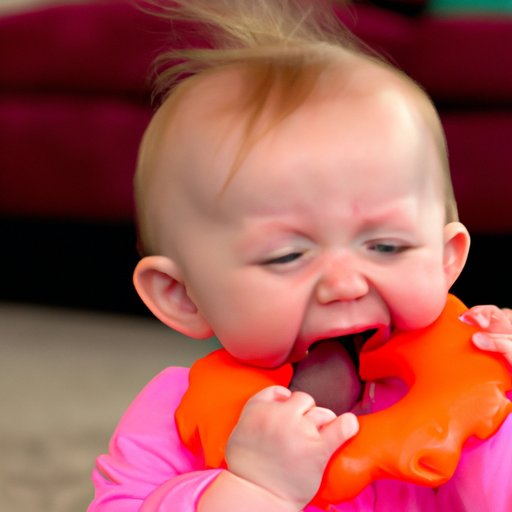Introduction
Have you ever wondered why babies put everything in their mouth? This common behavior can be both adorable and concerning for parents. In this article, we will explore the science behind mouthing behavior and its role in babies’ development.
The Science Behind Babies’ Mouths
For babies, the mouth is a key sensory organ. It allows them to explore and learn about the world around them through taste, texture, and temperature. Oral exploration is an important stage in their development and helps them gain a sense of control over their environment.
The Developmental Stages of Babies
As babies grow, they go through different developmental stages, each with its own unique challenges and benefits. From newborns to infants, crawlers to toddlers, mouthing is a normal part of growing up. It helps babies learn about their bodies, environment, and eventually develop other important skills such as language and feeding.
Are Babies Hardwired to Explore the World Through Their Mouths?
According to the evolutionary theory, babies are born with the instinct to explore their surroundings through their mouths. This theory suggests that as early humans needed to learn about their environment quickly, babies who efficiently explored their environment through their mouth were more likely to survive. However, the theory has not been conclusively supported by research.
The Risks and Benefits of Mouthing Behavior
Mouthing behavior can pose potential risks to babies, including choking and poisoning. However, there are also benefits to this behavior. Sensory exploration can help babies develop their brains and organization skills. And, the act of sucking during mouthing behavior can provide soothing benefits during nerve-wracking times.
Teething, Curiosity, or Both
Babies’ mouthing behavior may be affected by teething and curiosity. As teeth begin to emerge, a baby may feel discomfort and choose to relieve it by chewing on objects. Curiosity can also play a role, as babies explore their environment through touch and taste.
The Connection Between Oral Motor Skills and Mouthing Behavior
Mouthing behavior helps babies develop important oral motor skills. Chewing and sucking are the beginning stages of developing oral muscles which are critical later for talking and eating. By chewing on toys, pacifiers, and other objects, babies can develop these skills early on, laying the foundation for their future development.
Practical Tips to Redirect Mouthing Behavior
To encourage exploration while reducing the risks of mouthing behavior, parents should provide safe toys and supervise closely. As babies naturally put things in their mouths, it is important to provide appropriate alternatives that won’t be a choking hazard. Additionally, if you suspect that your baby may have ingested something dangerous, seek medical attention immediately.
Conclusion
Mouthing behavior is a natural part of babies’ development. By understanding the science behind this behavior, you can provide a safe environment for exploration and encourage proper development of oral motor skills. Remember, with patience and awareness, mouthing behavior can be a healthy part of your baby’s growth.
